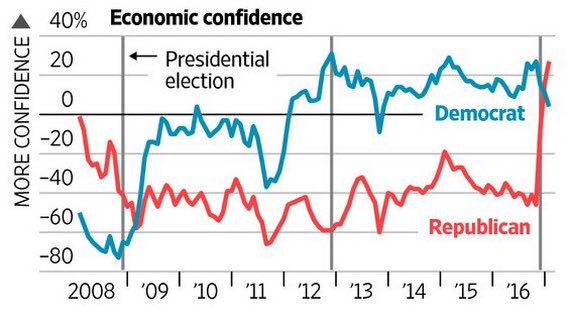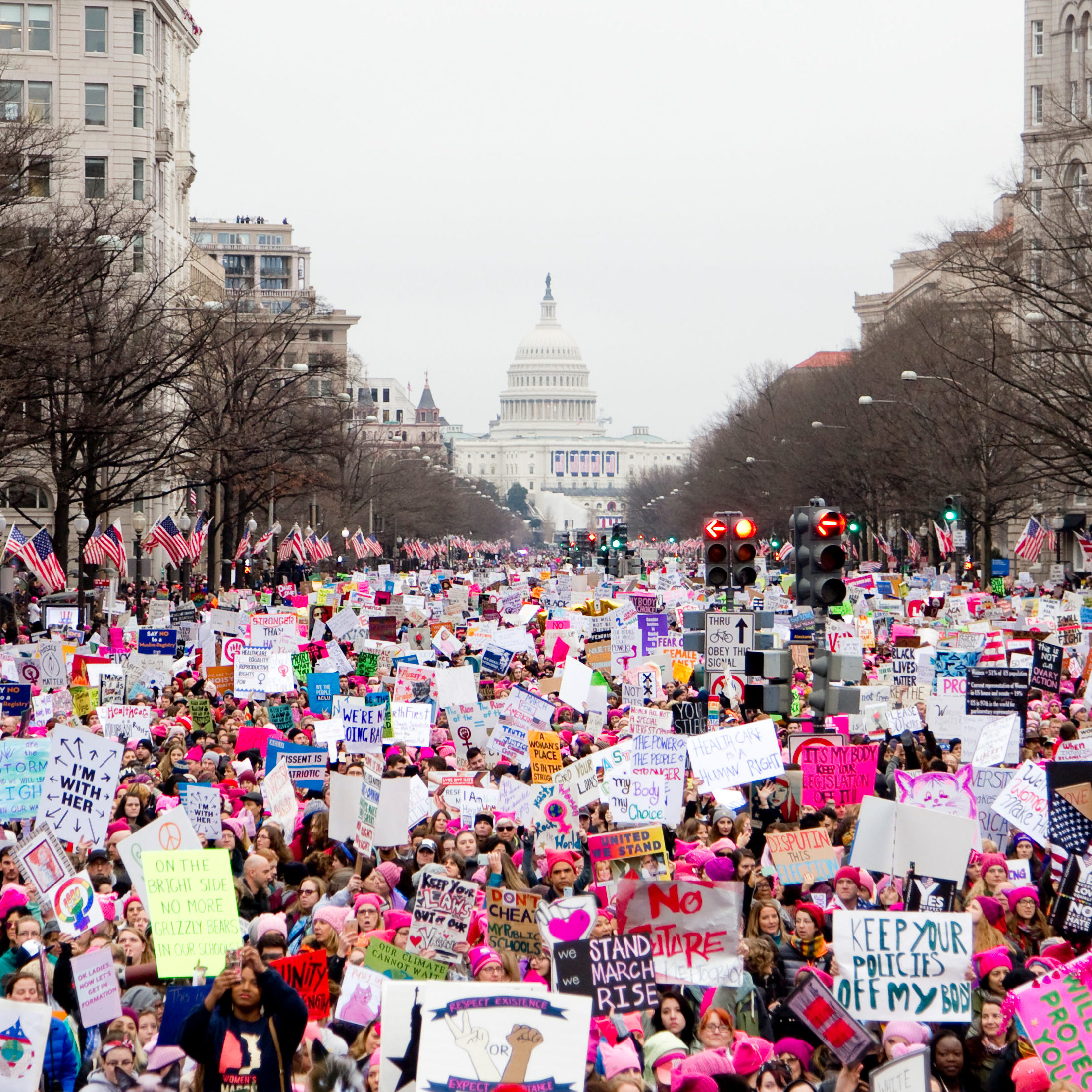Given the massive polarization between Republicans and Democrats, I have been thinking a lot about how our personal views on the environment, social issues, economics and therefore politics can affect our world-views and possibly derail a rational and disciplined long-term investment strategy.
During the Obama years, I found myself constantly asked to defend economic data in the face of doubt amongst Republicans. Indeed, after the Great Recession, unemployment, GDP, and importantly, corporate profits all staged recoveries, albeit slow ones. But it seemed that many politically conservative investors (and managers) were reluctant to believe the data and therefore invest. Many stayed on the sidelines, sitting heavy in cash and bonds, missing out on at least some of the 235% gains for the S&P 500[1] during Obama’s residency in the White House.
Why? Well, some undoubtedly exited the markets during the crisis and were emotionally incapable of getting back in. But a lot seemed unwilling to believe in the recovery. It seemed that whenever employment data came out, there were always naysayers, citing for example participation rates (which actually started declining during the Clinton era long before Obama), rather than getting excited by the steady increases in non-farm payrolls or reductions in unemployment. Likewise, whenever inflation data showed no imminent crisis from loose monetary policy, the same people would posit that inflation is actually rampant but not getting picked up. It just seemed that Conservatives tended to be reticent to believe that things could possibly be getting better. They just wouldn’t or couldn’t buy it.
Now that the tables are turned, it seems that monies are rushing in from conservative sources. I don’t have any firm data to prove it, but consider the chart from the Wall Street Journal below. Look at that spike in the red upon Trump’s election. It seems logical to conclude that some of the recent bull market is due to conservatives’ new appetite for risk, bidding stock prices higher. It is unfortunate for them that they are investing now after likely missing so much in gains and when corporate valuations are so much higher.

Economic Surveys Show Deep Splits in Confidence Along Party Lines,” www.wsj.com, February 28, 2017.
At the same time, we have been inundated with calls from our more liberal clients to help them understand that the world will not end with Trump, and that they should stay invested.
I guess it is pretty logical on the surface to imagine that people want to vote with their wallets as well as their ballots. And if one’s political leader lost, then one can imagine excitement over the investment environment might suffer. But this kind of subjective reasoning ignores some pretty basic tenets of long-term investing. First, making investment decisions based upon how we feel about ‘things’ is a recipe for disaster. Even if we knew how a presidential leader might affect the economy, the markets are not the economy. Conservatives hate the idea of government dollars fueling an economic recovery, but if those dollars also fueled higher stock prices, it is a shame to miss out on the price appreciation necessary to support their retirement goals. At the same time, liberals hate almost everything Trump stands for, but if this Republican” can implement fiscal spending (much of which they have wanted for years) to spur growth and they sit in cash in protest, the value of their hard-earned dollars could be eaten away by inflation.
The market doesn’t care about how any one of us feels” about things. Sure there are very effective ways to support personal causes through socially responsible screens on portfolios and/or impact investing to target specific industries (a very exciting topic outside the scope of this blog), but when it comes to one’s broader allocations to risk, one should be dispassionately objective. Otherwise, one risks materially affecting one’s financial future.
[1] Standard and Poor’s, Inc.; 01/20/09 – 01/20/17

